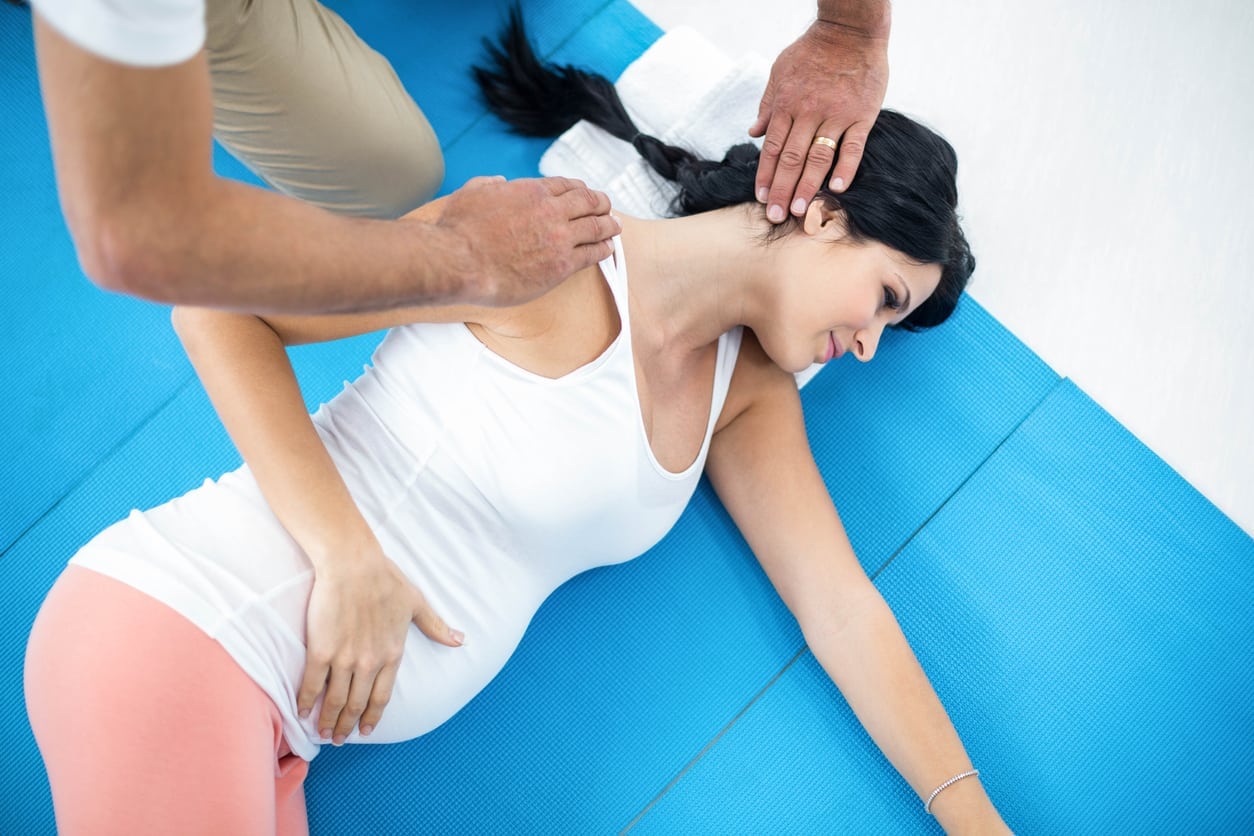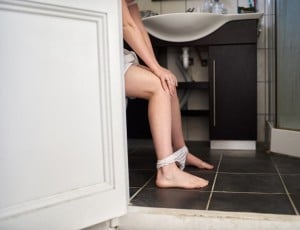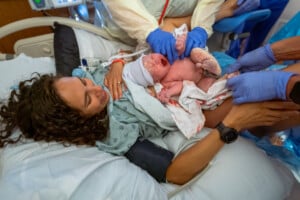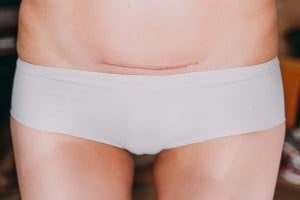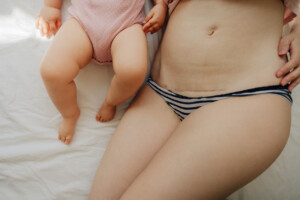Some might call me biased, but in my 15 years of providing physical therapy, I have concluded that every mom should participate in a rehabilitation-based postpartum recovery program.
Most moms experience musculoskeletal pain on a weekly (if not daily) basis, and many of us assume that this is just a normal part of motherhood. Although it is very common, it is NOT normal.
Pain is our body’s way of signaling that something is wrong. Many moms wait to address these aches and pains until they become debilitating because caring for ourselves is usually at the end of our long “to-do” list. Participating in a postpartum recovery program can help to address those aches and pains or stop them before they start.
1. Limited Muscle Activation
Pregnancy and childbirth result in the stretching of many of the muscles that help to support our spine and pelvis—leaving women with not only a weaker core but an inability to activate those stretched and traumatized muscles fully. If the brain has difficulty turning these muscles on again, chronic weakness ensues, which can contribute to conditions such as urinary incontinence and low back pain. Retraining these muscles, what physical therapists call neuromuscular re-education, is a key component of any postpartum recovery program.
2. Weakness / Tightness
The abdominals lengthen and stretch to accommodate a growing belly and often separate along the body’s midline, a condition called Diastasis Recti. These changes result in abdominal weakness and decreased support for the spine. The pelvis tilts more anteriorly as pregnancy continues, causing tight hip flexors and weaker hip extensors. These muscle imbalances often remain after childbirth, leaving moms more vulnerable to injury.
3. Poor Posture
Postural changes are common during pregnancy as women adapt to a growing baby. As pregnancy progresses and women carry more weight in front of them, they develop an increased curvature in the lower back to balance that weight. Over time, that increased curvature can contribute to compressive forces on the spine and result in low back pain. After childbirth, we tend to see a more forward head and rounded shoulders due to weakness in the muscles that help anchor the shoulder blades and the physical demands of infant care.
4. Altered Movement
If we do not address limited muscle activation, weakness and tightness, and poor posture, our bodies begin to move differently — following the path of least resistance. Instead of bending forward and hinging from our hips, we bend from our backs. Instead of coming out of that forward bend with our buttocks, we rely heavily on the back muscles. Over time, This repetitive stress on the spine and muscles can lead to injury. We see similar examples in the upper body. Instead of carrying our baby with our shoulders rolled back and our neck in a neutral position, we follow the path of least resistance and fall into a more forward head and rounded shoulder position. This can result in shoulder and neck pain or nerve injury, which can manifest as numbness, tingling, burning, or pain in the arm or hand.
5. Pain
With injury comes PAIN — a signal that your joint or muscle is not moving or working optimally. Your body has brilliantly figured out how to function, but that function will come at a cost, and eventually, that joint or muscle will say, ENOUGH!
A good postpartum recovery program will teach you how to engage your core muscles again and activate them in concert with one another to help stabilize your joints properly. The program should address strength and flexibility and restore good posture. Finally, you’ll want a program that provides education on positioning strategies and body mechanics to help limit the stress you place on your joints and muscles and restore more normal movement.
It’s never too late! Any mom who missed out on a postpartum recovery program can benefit from one at any stage of motherhood. It’s time for moms to say goodbye to those “aches and pains.” Regain their strength, and move with confidence. Postpartum recovery programs will soon become a new standard of postpartum care. One that has been a long time in coming!













